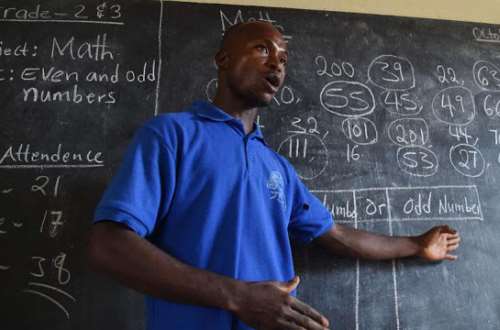A new study by the Institute for Education Studies (IFEST), an education policy think tank, has found that more than 75% of 4,480 teachers sampled are battling severe COVID-19-related stress.
According to the study, the pandemic has had a severe psychological effect on teachers.
“Financial, emotional, and social are other areas that teachers indicated that the pandemic has affected,†a statement on the study indicated.
The study, titled “Teaching in the midst of a pandemic; A focus on the Ghanaian Teacherâ€, was conducted between March 10 and May 11, 2021, and sought to put the spotlight on the Ghanaian teacher by assesses the perceived effect of Covid-19 on their professional life.
The study also revealed that 35.2% of teachers indicated that they have experienced severe levels of stress teaching during a pandemic while 25.6% stated that their levels of anxiety have increased. Anxiety levels were high among private school teachers as compared to their colleagues in public schools.
Also, “57.1% mentioned that they have not received any form of psychosocial support during this period with 35.8% indicated that they have received some form of psychosocial support and it is basically from family, friends, and their religious institutions. 7.1% declined to answer,†the report noted.
Data for the study was collected through paper and online questionnaires from the sampled teachers in both public and private basic and secondary schools across 10 regions and 80 districts in Ghana.
The following are among the other findings:
- Gender differences existed in the levels of stress recorded with female teachers having significantly high levels compared to the males.
- Teachers at the primary level indicated that they had significantly high levels of stress and anxiety as compared to those at Junior High and Senior High. Prominent among the source of stress and anxiety for primary level teachers was the issue of the new curriculum and textbooks.
- Again, in terms of location, teachers in urban areas seem to have higher levels of stress as compared to those in peri-urban and rural areas.
- 1% of the teachers indicated that their students exhibited learning loss when they reported to the school. The learning loss from the perspective of the teachers is higher at the primary and junior high levels as compared to the senior high.
- 3% of the respondents mentioned that it will take between 1 – 3 months for students to recover while 28.6% indicated that 4 – 6 months would be okay.
- Average attendance of students hovers around 70% - 85% since school reopened with Primary and Junior high teachers indicating that, there is higher fluctuation in student attendance.
Prominent needs of teachers during this period include:
- All issues relating to teaching-learning resources and protective equipment
- Teacher motivation and other forms of financial assistance
- Specific training in e-learning and other ICT related issues
- Regular and productive supervision using more humane supervisory strategies
  Based on these findings, IFEST makes the following recommendations:
- Ministry of Education (MoE) and Ghana Education Service (GES) should strengthen their employee welfare and support systems and modernise them to meet the challenging needs of the teacher in these times. That is, special psychological care should be given to those teachers that are most vulnerable to the impact of this pandemic so that they could better cope with this crisis, and consequently perform better in their teaching role.
- Teacher unions should also be interested in providing psychosocial support to their members. This can be in a form of a brief get-together, social trips, encouraging text messages, and random visits from leadership to members during school hours to interact with them.
- Ghana Education Service should review the Continuous Professional Development (CPD) day and Professional Learning Communities (PLC) to make it robust in addressing the specific needs of teachers in specific communities. IFEST proposes the merging of the two activities and the adoption of the time-tested Communities of Practice (CoP) model to serve the needs of the teacher.
- IFEST recommends that the National School Inspectorate Authority (NaSIA) should continuously train school inspectors in modern supervisory techniques that reflect the changing dynamics of this time to enable the teacher to perceive the school inspector as a partner in improving the teaching and learning process.
- Teacher welfare issues go beyond financial assistance, to the provision of safe and conducive teaching and learning environment. MoE and GES should take stringent efforts to improve the school environment to make them relatively stress-free.





